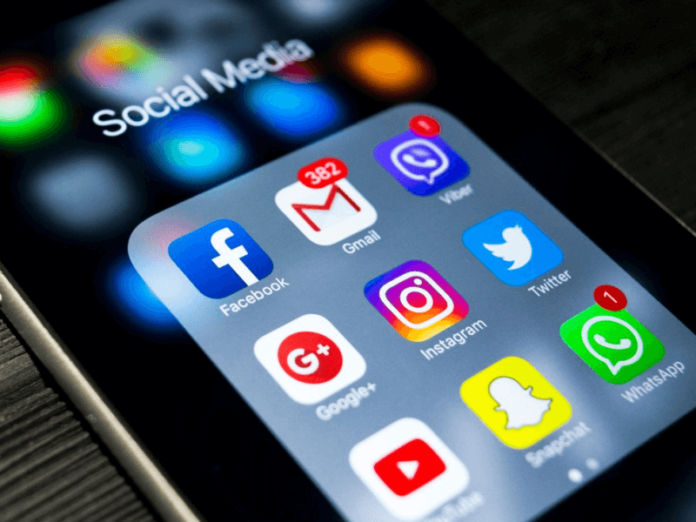Supreme court takes over all cases related to privacy and the authority of the government to access social media accounts of citizens. Meanwhile, the debate rages on.
By Kunal Chatterjee
The critical issue as to whether the state can seek access to citizens’ social media accounts by forcing intermediaries like Facebook and WhatsApp would be examined by the Supreme Court, which on Tuesday transferred to itself all cases related to the issue from other high courts.
Various cases on linking-social media profiles with biometric ID Aadhaar and tracing the originator of a message are pending in different High Courts across the country.
The apex court observed that it is of the view, prima facie, that the liability should be on the intermediaries to decrypt a message or provide the material to the government for decryption.
A bench of Justices Deepak Gupta and Aniruddha Bose asked the Centre to submit its report in January on the notification of rules by which social media misuse can be checked and liability could be fastened on the intermediaries to decrypt messages.
The top court asked its registry to place the list of all connected matters before the Chief Justice of India for listing before an appropriate bench in the last week of January 2020.
At the outset, attorney general KK Venugopal, appearing for Tamil Nadu government said that section 69 of Information Technology (IT) Act allows for decryption of the messages or any content, and the stand of Whatsapp and Facebook that these cannot be decrypted is not acceptable.
The Section was amended to favour lawful interception, monitoring and decryption of information and till now these provisions have not been challenged, he said.”Now, these social media intermediaries cannot come into the country and say they cannot allow the decryption of the content. They cannot use the technology which does not allow decryption.
They have to follow the law of the land and they are subject to Indian jurisdiction,” Venugopal said.
To this, the bench said that section 69 of the IT Act empowers the government to encrypt the data but the question is “can we force the intermediaries to decrypt the data for you? Prima facie the liability should be on the intermediaries to decrypt the data or at least provide the material to you for decryption”.
Venugopal said that they are not asking them to decrypt the messages but “all we want from them is to facilitate the decryption. The court should ask them to facilitate the access”.
However, in the midst of hearing, Venugopal said he had just now received instruction from his client and dropped his opposition to Facebook’s plea seeking the transfer of all cases pending in different high courts to the apex court.
Senior advocate Mukul Rohatgi, appearing for Facebook, said the intermediaries are not obligated under the rules to provide the decryption.
“We don’t have the key to the door. We don’t have the technology to decrypt the messages. There are no such rules which mandate me to provide access. It is also the question of privacy of the individual and this has a worldwide ramification,” he said.
Solicitor General Tushar Mehta, appearing for Centre, said they have filed an affidavit explaining that they need time till January 15 for notification of rules regulating the intermediaries as a wide-scale consultation process is underway.
Senior advocate Shyam Divan, appearing for Internet Freedom Association, informed the court that a plea is pending before the top court in which rules of 2011 have been challenged.
He said that although they are supporting the Attorney General in opposing the transfer petition of Facebook, the court should restrain itself from making any comments which would affect the merits of the case.
“It is just a transfer petition and the court should restrain itself from making any comments which affect the merits of the case. The question here concerns the individual’s privacy.
The observation made by the court may affect the privacy of the individuals. It is a ploy of government that under the garb of these rules, it wants to trample upon the privacy of the individuals,” Divan said.
Mehta opposed the submission of Divan and clarified that there is no ploy of the government to breach the privacy of an individual but the court has to strike a balance between individual’s privacy and the national security and sovereignty.
Venugopal also said that a terrorist cannot claim his right to privacy.
The bench said that it is transferring all the cases related to the linkage of social media profiles with Aadhaar and related matters to itself from different High Courts.
On Monday, the Centre had told the court that internet has emerged as a potent tool to cause “unimaginable disruption” to democratic polity, and sought three more months for finalising and notifying the rules that would regulate the functioning of social media intermediaries in the country.
The Ministry of Electronics and Information Technology (MeitY) had told the top court that though technology had led to economic growth and societal development, there was also an exponential rise in hate speech, fake news and anti-national activities.
On September 24, the top court had observed that technology had taken a “dangerous turn” and asked the Centre to apprise it within three weeks about the time-frame needed to come up with guidelines to curb misuse of social media in the country.
The social media giant had pointed out that there were four petitions — two in the Madras High Court, one in the Bombay High Court and one in the Madhya Pradesh High Court and that they contained almost similar prayers.








